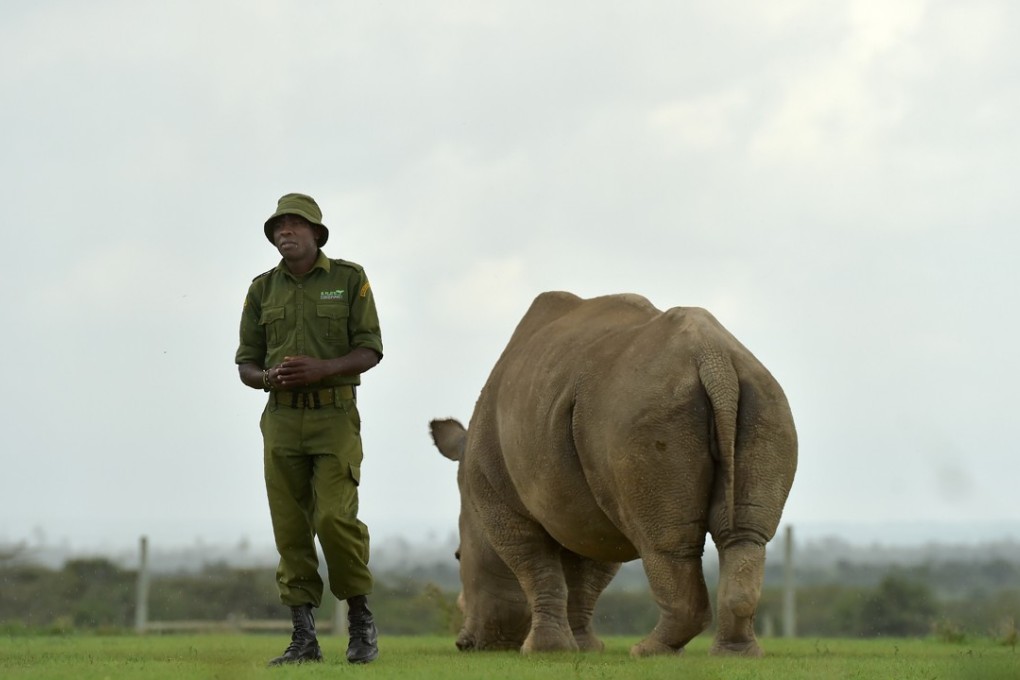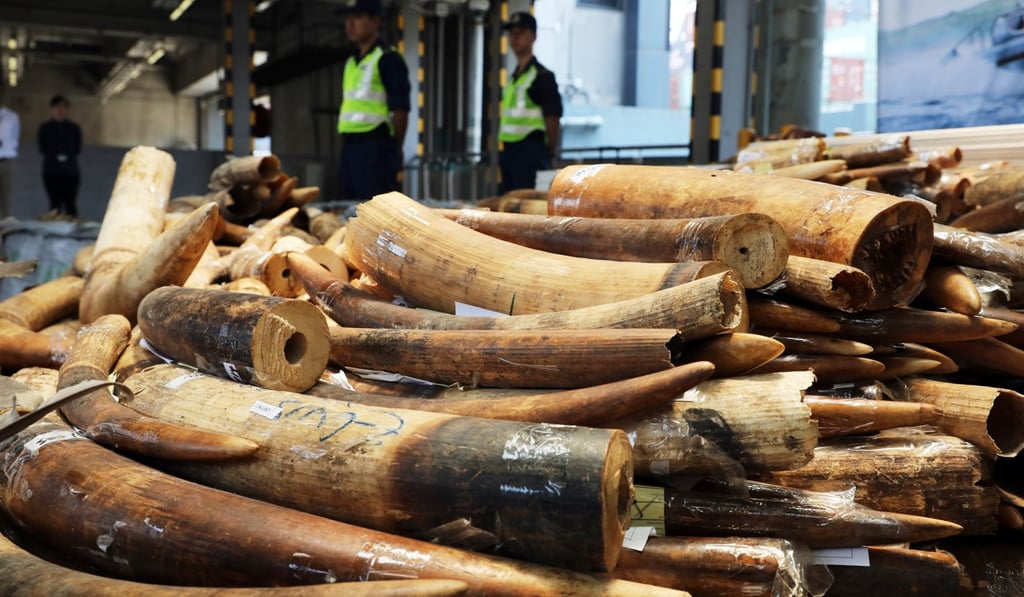Advertisement
African witnesses to illegal wildlife trade tell of its devastating impact, after China relaxes ban
- James Mwenda tended to world’s last male northern white rhino. Of China easing its ban on rhino horn trade, he says, ‘It’s sad to see the dark side of humanity’
- Lee White, battling to save the forest elephants of Gabon from ivory poachers, says it’s a fight for the country’s future too
Reading Time:4 minutes
Why you can trust SCMP

James Mwenda is in Hong Kong this week to deliver a message for a dead friend, fulfilling a promise in the process.
On March 19, the game warden at Kenya’s Ol Pejeta Conservancy bid farewell to Sudan, the last male northern white rhino, who was put down aged 45 (90 in rhino years) after a long illness. All that is left of the subspecies are two females – Najin and her daughter Fatu, Sudan’s daughter and granddaughter. It seems that IVF is the species’ only hope.
“His death is the catalyst for my message,” said Mwenda on the phone from the non-profit wildlife conservancy in Kenya’s Laikipia County. “I am giving Sudan the voice he did not have.”
Advertisement
His is a much-needed voice.
Advertisement
Last month, China relaxed a 25-year trade ban on rhino horn and tiger bones, saying it would allow the sale of rhino and tiger products under “special circumstances” that include scientific research, sales of cultural relics, and “medical research or in healing”.

Advertisement
Select Voice
Choose your listening speed
Get through articles 2x faster
1.25x
250 WPM
Slow
Average
Fast
1.25x